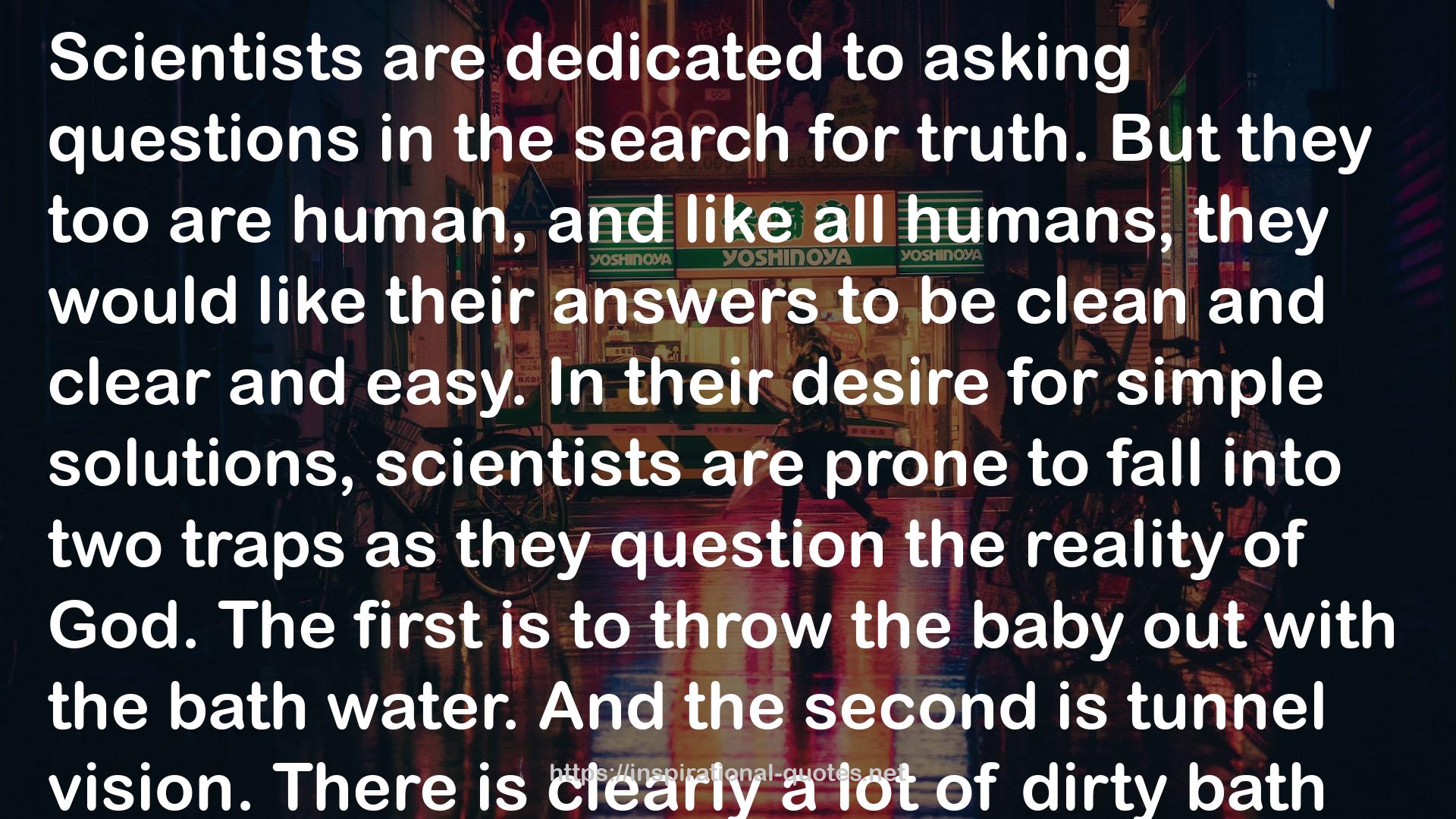" Scientists are dedicated to asking questions in the search for truth. But they too are human, and like all humans, they would like their answers to be clean and clear and easy. In their desire for simple solutions, scientists are prone to fall into two traps as they question the reality of God. The first is to throw the baby out with the bath water. And the second is tunnel vision. There is clearly a lot of dirty bath water surrounding the reality of God. Holy wars. Inquisitions. Animal sacrifice. Human sacrifice. Superstition. Stultification. Dogmatism. Ignorance. Hypocrisy. Self-righteousness. Rigidity. Cruelty. Book-burning. Witch-burning. Inhibition. Fear. Conformity. Morbid guilt. Insanity. The list is almost endless. But is all this what God has done to humans or what humans have done to God? It is abundantly evident that belief in God is often destructively dogmatic. Is the problem, then, that humans tend to believe in God, or is the problem that humans tend to be dogmatic? "
― M. Scott Peck , The Road Less Traveled: A New Psychology of Love, Traditional Values and Spiritual Growth
